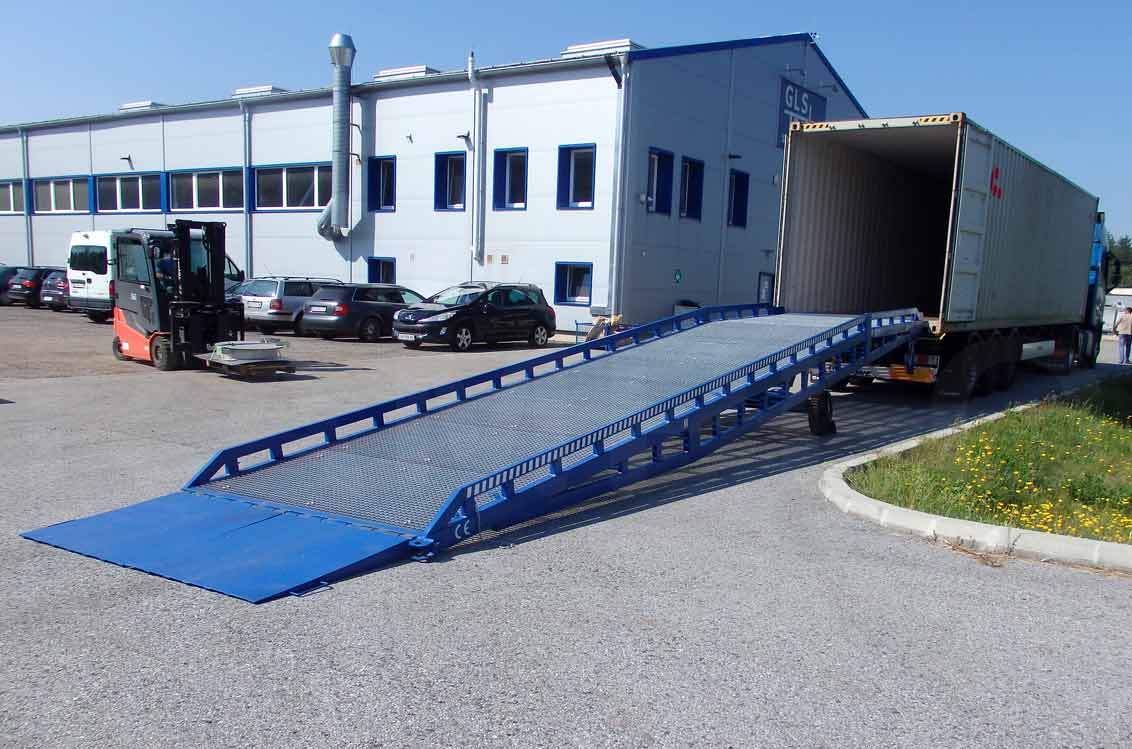Introduction
Loading and unloading heavy equipment or goods can be a challenging task, especially when you need to bridge the gap between different surfaces. Portable loading ramps have emerged as essential tools in various industries, offering a convenient and efficient solution to this problem. In this article, we will explore the versatility and benefits of portable loading ramps, highlighting their importance in various settings.
1. Understanding Portable Loading Ramps
Portable loading ramps, also known as portable dock ramps or loading dock plates, are versatile devices designed to bridge the gap between a loading dock and a truck or other transport vehicles.
2. Types of Portable Loading Ramps
There are several types of portable loading ramps available, including aluminum ramps, steel ramps, and yard ramps, each with unique features and advantages.
3. Lightweight and Durable
Portable loading ramps are often made of lightweight yet durable materials like aluminum, which makes them easy to transport and maneuver while maintaining their structural integrity.
4. Adjustable Heights
Many portable loading ramps come with adjustable heights, allowing them to accommodate various loading and unloading situations.
5. Weight Capacity
These ramps are designed to handle a wide range of weight capacities, making them suitable for both light and heavy-duty applications.
6. Easy Setup and Mobility
One of the key advantages of portable loading ramps is their ease of setup and mobility. They can be quickly deployed and repositioned as needed, saving time and effort.
7. Versatility in Industries
Portable loading ramps find applications in various industries, such as warehousing, manufacturing, construction, and agriculture.
8. Warehousing Efficiency
In warehouses, these ramps facilitate the efficient movement of goods between trucks and storage areas, streamlining operations.
9. Construction Sites
Construction sites benefit from portable loading ramps for loading heavy equipment onto trailers, ensuring smooth project progress.
10. Agricultural Use
In agriculture, these ramps assist in loading and unloading heavy farm machinery and vehicles, improving productivity.
11. Loading Dock Extension
Portable ramps can extend the reach of loading docks, enabling the handling of a wider range of vehicles.
12. Safety Features
Most portable loading ramps are equipped with safety features like non-slip surfaces and handrails, ensuring a secure working environment.
13. Cost-Effective Solution
Compared to permanent loading dock installations, portable ramps offer a cost-effective solution that can be customized to fit various needs.
14. Environmental Considerations
Many portable loading ramps are made from recyclable materials, making them an environmentally friendly choice.
15. Maintenance
These ramps require minimal maintenance, reducing long-term operational costs.
16. Regulatory Compliance
Ensure that your portable loading ramp complies with safety and accessibility regulations to maintain a safe working environment.
17. Customization Options
You can often customize portable loading ramps to suit your specific requirements, including size, weight capacity, and special features.
18. Rental Options
If you don’t need a portable loading ramp year-round, consider rental options to save costs.
19. Training and Safety
Proper training and adherence to safety protocols are essential when using portable loading ramps to prevent accidents.
Conclusion
Portable loading ramps offer versatility, convenience, and cost-effectiveness across a wide range of industries. Whether you need to bridge the gap in a warehouse, on a construction site, or in agricultural settings, these ramps provide an essential solution for efficient loading and unloading. By understanding their benefits and customization options, you can make the most of these versatile tools in your operations.








